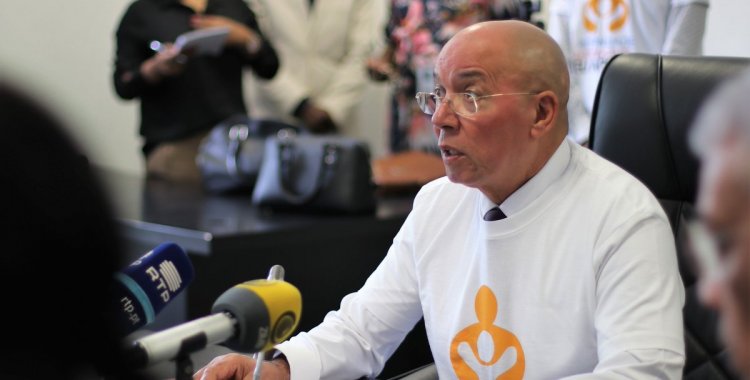"Religious freedom continues to be a principle that the Angolan State will always respect. What has happened, and is happening, with one of the religious confessions are internal conflicts that arise not only in this confession but in others that are there", stressed Francisco Queiroz, in statements to Lusa, on the sidelines of the 15th Consultative Council of the Ministry of Justice and Human Rights.
In the case of the IURD, in addition to internal issues, "it slipped into issues of public order and people's rights" and "slipped into areas in which the State cannot remain indifferent because they indicate a crime", he added.
On Thursday, the day in which the trial of those responsible for the IURD in Angola for alleged crimes of criminal association and money laundering began, the IURD in Brazil, the country from which it originates, expressed, in a statement, the wish that " the judiciary judges the matter according to the evidence and impartially, preserving the freedom of religion".
"The international community must be attentive. What happened in Angola, with the Universal Church of that country, is a serious precedent against this freedom of worship and belief and represents a serious threat to the presence of any denomination, religion and missionary of origin foreign, on Angolan soil", informed the Brazilian IURD.
Francisco Queiroz stressed that the State "has institutions that take care of these issues when the public interest is at stake, and that's what happened: the Attorney General's Office intervened, carried out inquiries, instructed the processes and sent them to the court, which is the competent body to settle the conflicts and the decision that comes out will naturally be respected".
He also reiterated that religious freedom is an achievement of democracy that the Government "wants to keep alive" and that the solutions to internal conflicts pass through the churches themselves.
"We are not going to go along with this view that it is something against the "a" or "b" state or against the "a" or "b" nationality, that is to try to confuse what is actually happening within the Church, a problem which cannot involve the States, much less in this perspective of protecting one or the other. The State gives equal protection to all", he emphasized.
The government official also said that normally "those who feel harassed tend to question the verticality and exemption from justice" and may even carry out "very strong and structured campaigns", with political involvement, to try to influence the progress and treatment of Law Suit.
In the trial that began on Thursday, the Brazilian bishop and former spiritual leader of the church, Honorilton Gonçalves, the Angolan bishop António Ferraz, the Brazilian pastor Fernando Teixeira, who was director of TV Record África, the Angolan pastor Belo Kifua, as well as Brazilian pastor Rodrigo César Ferreira do Carmo, absent from the country after being expelled by the Angolan authorities
According to the prosecution's lawyer, David Mendes, two cases are under trial, one related to money laundering and the second about fraud and fraud, concerning a woman who was allegedly injured by the church in more than 150 million kwanzas in favor of the church.
The Brazilian website UOL reported on Thursday that the IURD illegally left Angola for South Africa every three months, every three months, according to reports by Angolan bishops to the country's authorities, totaling 120 million of dollars a year.
Pastor Fernando Teixeira, one of the co-accused at the trial, was appointed as responsible for this task.
The conflicts of the IURD in Angola have dragged on since 2019, when a group of Angolan pastors dismissed the Brazilian leadership, with several accusations, namely of currency evasion, racism, mandatory practice of vasectomy, among others, all refused by the missionaries of the created church. by Brazilian Edir Macedo, who also accuse Angolans of acts of xenophobia and aggression.
In the course of the situation, which was also marked by the forcible seizure of temples across the country by the Angolan bishops, the court decreed the closure of the temples, and some resigners were also invited to leave the national territory.
Francisco Queiroz on IURD case: State respects religious freedom, but is not indifferent to crime
The Minister of Justice and Human Rights said that Angola respects religious freedom, but that the State intervenes when there is evidence of crime, as happened with the Universal Church of the Kingdom of God (IURD).







